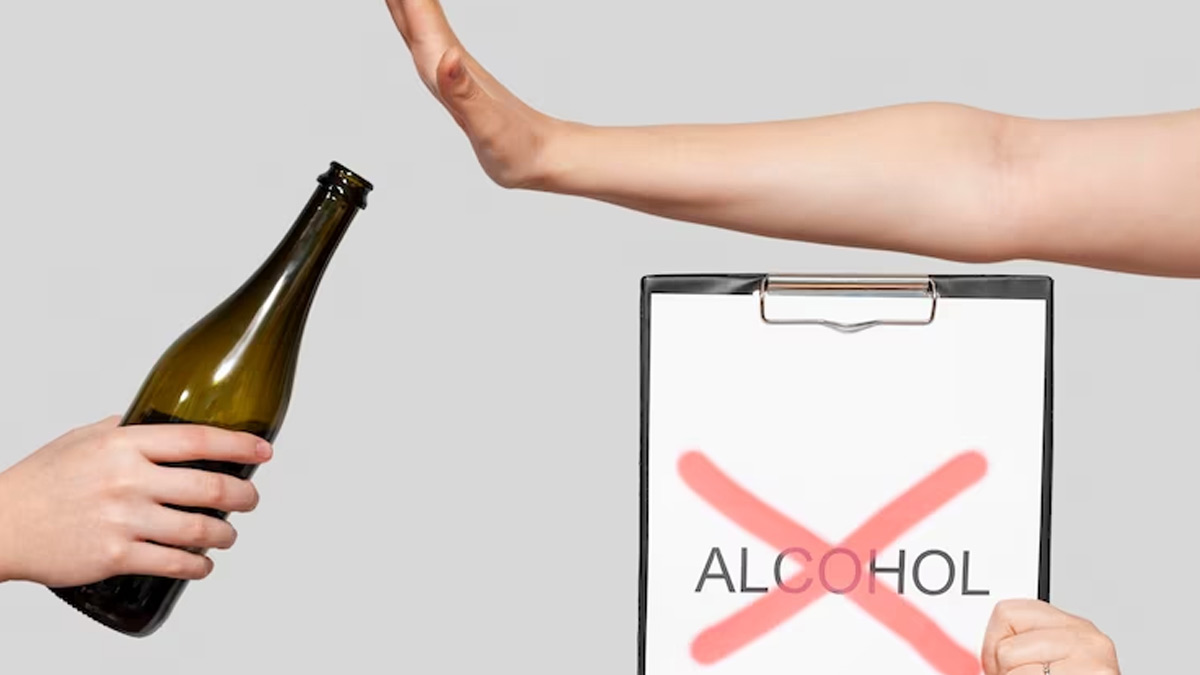
Alcohol is a widely consumed substance all over the world, and many people enjoy it responsibly. However, alcohol consumption can be harmful, and certain symptoms indicate that an individual should not consume alcohol.
Table of Content:-
There are several reasons why a person should not consume alcohol. The most common is when they have a medical condition that can be aggravated by alcohol consumption. Alcohol can cause severe harm to the liver, pancreas, and other organs. It can also lead to dehydration, impaired judgement, and poor decision-making, which can put an individual at risk of accidents and injuries.
Symptoms That Say You Should Not Consume Alcohol
In this article, we will discuss the symptoms that indicate that a person should not consume alcohol.
1. Medical Conditions
Individuals who have certain medical conditions should avoid alcohol altogether. These medical conditions include liver disease, pancreatitis, epilepsy, ulcers, and heart disease. Alcohol can worsen these conditions and lead to severe health consequences.
People who have a family history of alcoholism should also be cautious about consuming alcohol. Alcoholism is a disease that runs in families, and individuals with a family history of alcoholism are at a higher risk of developing the disease.

Also read: Reverse Dieting: Benefits & Ways It Can Help In Maintaining Weight
2. Allergic Reactions
Some individuals may have an allergic reaction to alcohol. Symptoms of an allergic reaction can include hives, itching, and difficulty breathing. If a person experiences any of these symptoms after consuming alcohol, they should seek medical attention immediately.
3. Medication Interactions
Alcohol can interact with certain medications, which can be harmful to a person's health. Some medications that can interact with alcohol include antidepressants, antipsychotics and pain relievers. Individuals who are taking these medications should avoid consuming alcohol altogether or consult with their doctor before drinking alcohol.
4. Mental Health Disorders
Individuals who have mental health disorders such as depression, anxiety, or bipolar disorder should be cautious about consuming alcohol. Alcohol can worsen these conditions and lead to mood swings and emotional instability.
Also read: Reverse Dieting: Benefits & Ways It Can Help In Maintaining Weight

5. Pregnancy
Pregnant women should not consume alcohol as it can harm the developing foetus. Drinking alcohol during pregnancy can lead to foetal alcohol syndrome, which can cause physical and mental disabilities in the baby.
6. Age
Individuals who are under the legal drinking age should not consume alcohol. Drinking alcohol at a young age can lead to addiction and other health problems later in life. It can also impair brain development and lead to poor decision-making.
7. Intolerance
Some people may have a low tolerance for alcohol, which can lead to adverse effects such as headaches, nausea, and dizziness. If a person experiences these symptoms after consuming alcohol, they should limit their alcohol intake or avoid it altogether.
Alcohol consumption can be harmful, and certain symptoms indicate that an individual should not consume alcohol. These symptoms include medical conditions, allergic reactions, medication interactions, mental health disorders, pregnancy, age, and intolerance. If a person experiences any of these symptoms after consuming alcohol, they should seek medical attention immediately and avoid consuming alcohol in the future. It is essential to be responsible when consuming alcohol and to know your limits to avoid any adverse effects.
Also watch this video
Read Next
Ruptured Eardrum: Symptoms And Treatment
How we keep this article up to date:
We work with experts and keep a close eye on the latest in health and wellness. Whenever there is a new research or helpful information, we update our articles with accurate and useful advice.
Current Version